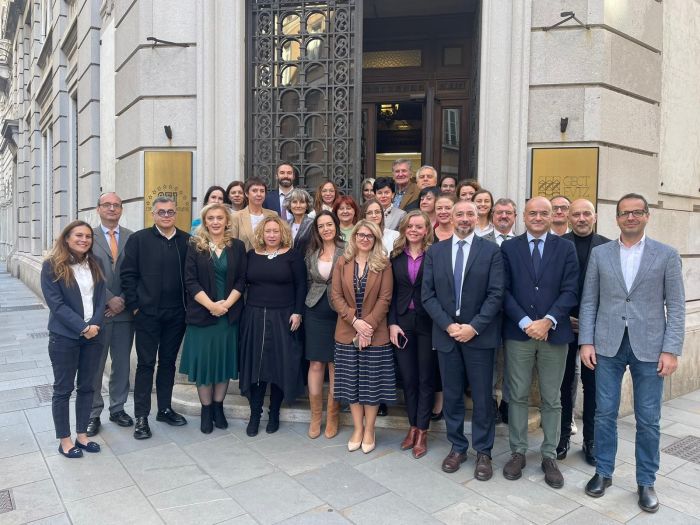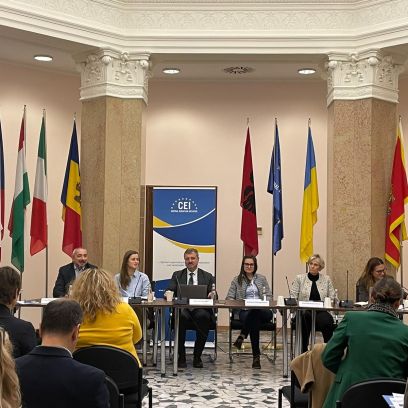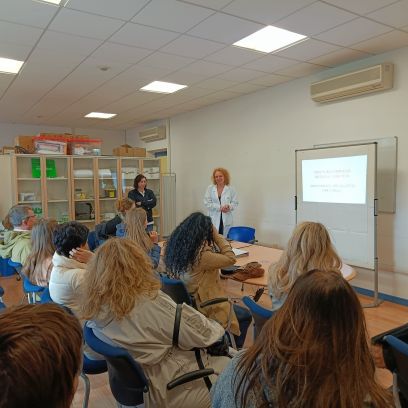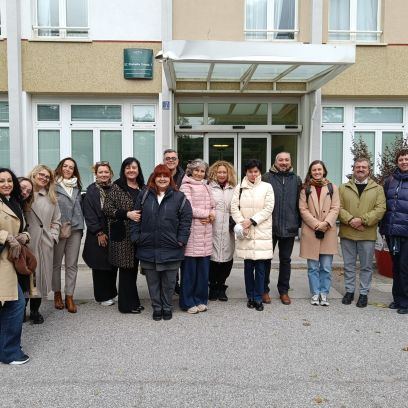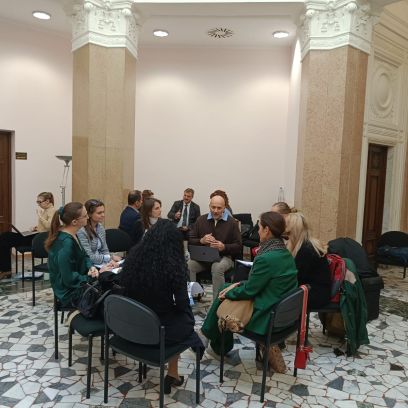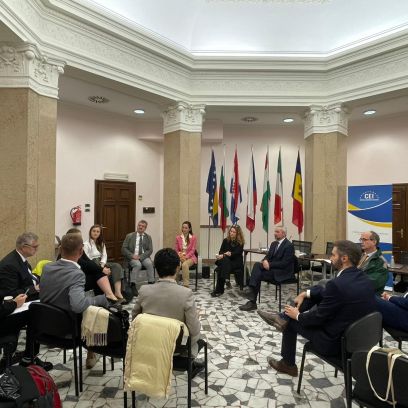On 12-14 November 2024, public health authorities from the Western Balkans, relevant WHO representatives from technical teams and country/field offices, CEI representatives, Friuli-Venezia-Giulia health authorities and invited experts, gathered in Trieste for the 4th Western Balkans Inter-country/area meeting titled “Strengthening primary health care models to manage complex chronic conditions in the Western Balkans”.
The focus of the gathering was the comprehensive and integrated management of complex chronic conditions through a primary healthcare approach, with discussions on the current state of non-communicable diseases (NCDs), which are responsible for nearly 95% of deaths in the Western Balkans. The event also addressed the related management of the main challenges and strategies in service delivery models.
Roberto Antonione, CEI Secretary-General, together with Gianna Zamaro, Director of Central Directorate of Friuli Venezia-Giulia for Health, Social Policies, and Disabilities; Fabio Scano, WHO special envoy for Western Balkans; Gian Matteo Apuzzo, WHO European Centre for PHC and Andrea Di Lenarda, Health Authority of Trieste and Gorizia, opened the event. Antonione emphasised the importance of the WHO/CEI partnership, which had originated during the Covid-19 pandemic, and had been providing opportunities for mutual learning, best practice exchange and future synergies.
During the workshop stakeholders and experts from the Western Balkans engaged in meaningful discussions, presented their experiences in NCDs management, highlighted key challenges in setting integrated care pathways and management, organising multidisciplinary teams as well as the use of technology and medicine shortages.
The participants emphasised the importance of capacity building, notably education and empowerment of nurses in NCDs management, the key roles of prevention and promotion of healthy lifestyles as well as better service organisation to reduce waiting time and ensure adequate patient care, thanks to the efficient cooperation between the GPs and multidiciplinary teams. Furthermore, they all agreed on the need for constant collaboration in the region and a stronger multi-sectoral cooperation. Topics such as creating healthy environments, joint public procurement and involvement of other ministries such as those of education, finance, and environment were also mentioned as crucial elements for NCDs prevention.
On 14 November, participants took part in a field visit to the Health Authority of Trieste (ASUGI) where Giulio Antonini, Director of Health and Social Care Integration, addressed the topics of health and social care integration, innovative initiatives on integrated management of hospital discharge and mental health and chronic conditions.
Overall, the 3-day event was a chance to learn from each other about primary health care models to manage complex chronic conditions and to exchange best practices among different stakeholders from the Western Balkans.
For more info: sinkovic@cei.int

